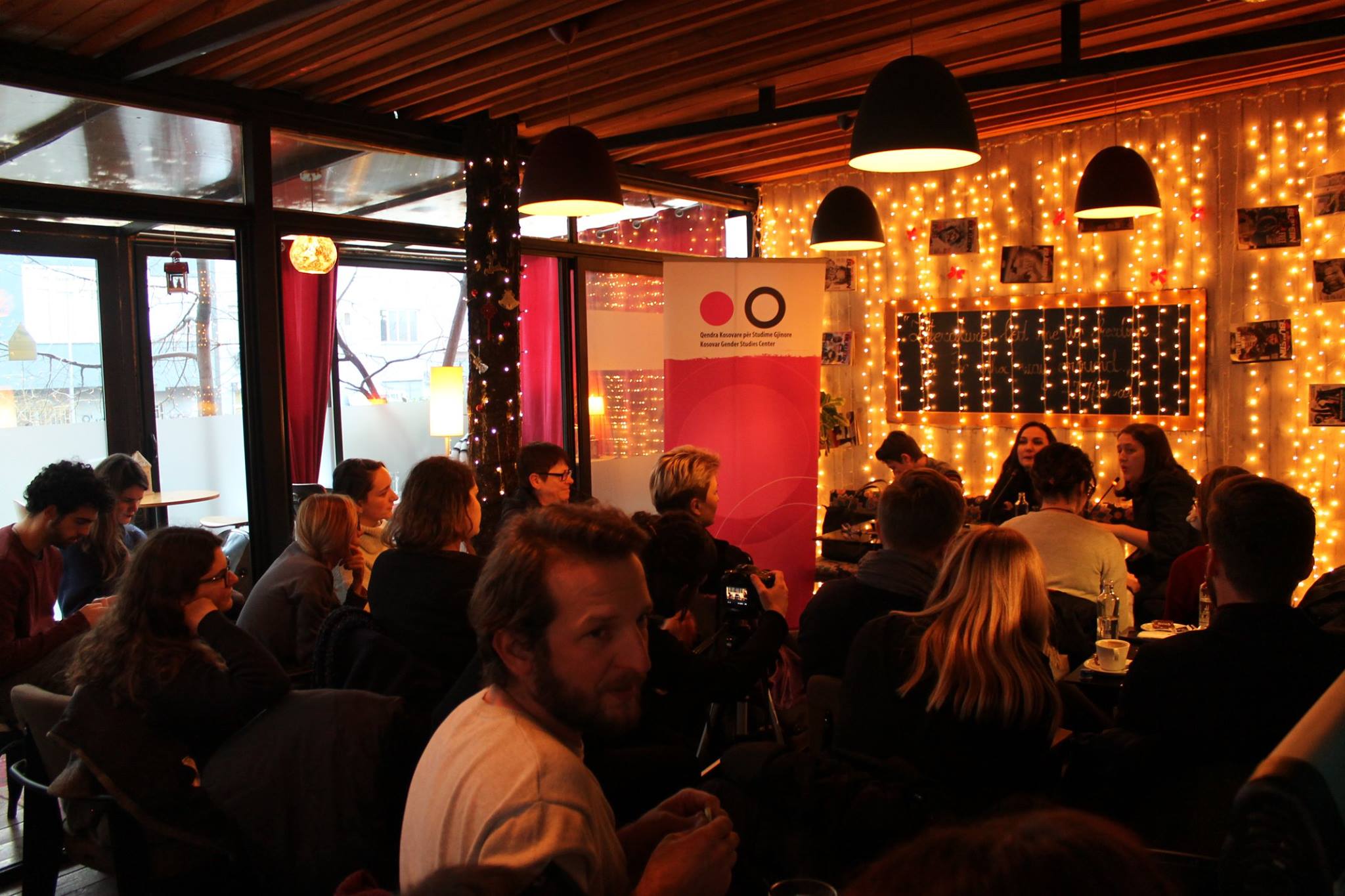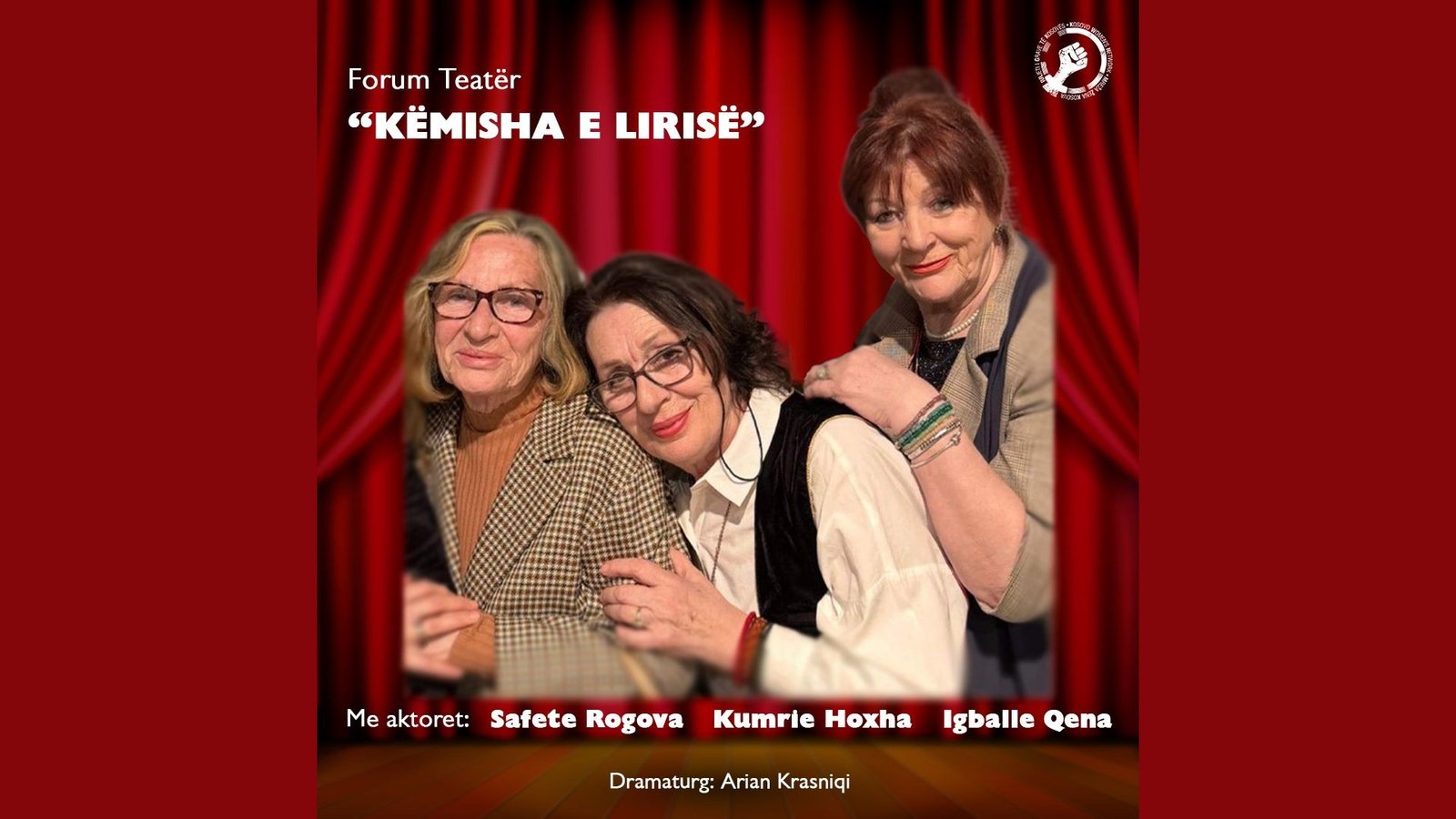Hosted by the Kosovo Center for Gender Studies (KCGS), a discussion panel meeting on “Feminism, solidarity, and women’s resistance in Kosovo” was held on 25 January at Kadare Bar & Books cafeteria, Prishtina. The panel was composed of Linda Gusia, feminist and lecturer at the Department of Sociology, Hasan Prishtina University, and Blert Morina, feminist and activist of LGBT community rights and director of the Center for Equality and Freedom (CEF). Luljeta Demolli, KCGS Executive Director, facilitated the panel.
Feminist movement has been recently embraced by girls, women, boys, and men all over the world, and Kosovo is no exception for this trend. Today in Kosovo, we see more and more young people being identified with the feminist movement and engaged in their daily lives in working towards gender equality. However, feminist movement in Kosovo started earlier. Women and girls in Kosovo have given their contribution to gender equality – a main cause of feminism. The women and girls’ role in various processes of social and political developments has been important but recognized little.
In this regard, Linda Gusia mentioned in her speech the role of women’s movement since 70s and 80s of the last century. In addition, she talked about various types of feminism that exist today in the world, and stressed the importance of cooperation among different activists towards achieving the common goal–gender equality and respect for human rights.
Blert Morina, on the other hand, emphasize the role of activism as a tool for achieving gender equality and respect for human rights. He also mentioned the role that solidarity and cooperation among activities plays as a good way to achieving equality, but also as a means to influence citizens’ mobilization. Among others, he mentioned the organization of “Parade of Pride”, which because of solidarity and cooperation among activists, achieved success mentioned as a success story by various media around the world.
The panel participants agreed that it was only through solidarity and cooperation of activists representing various groups that the cause of gender equality will go further. Women from rural and urban areas, women with formal and informal education, women coming from various ethnic, cultural, and religious backgrounds, women with a different sexual orientation, and any person that feels himself or herself feminist, were invited by the participants to join the feminist movement and activism in order to achieve the gender equality.
Ms. Demolli from KCGS informed the participants that this is the first panel of this kind, and the second panel meeting, in which another topic will be discussed, is planned to be held in the months that follow. In addition, Ms. Gusia emphasized that it is important that such discussions take place in the premises of the public university, where the next meeting was decided to be held. These panel discussions have been supported by Kvinna till Kvinna Foundation.




